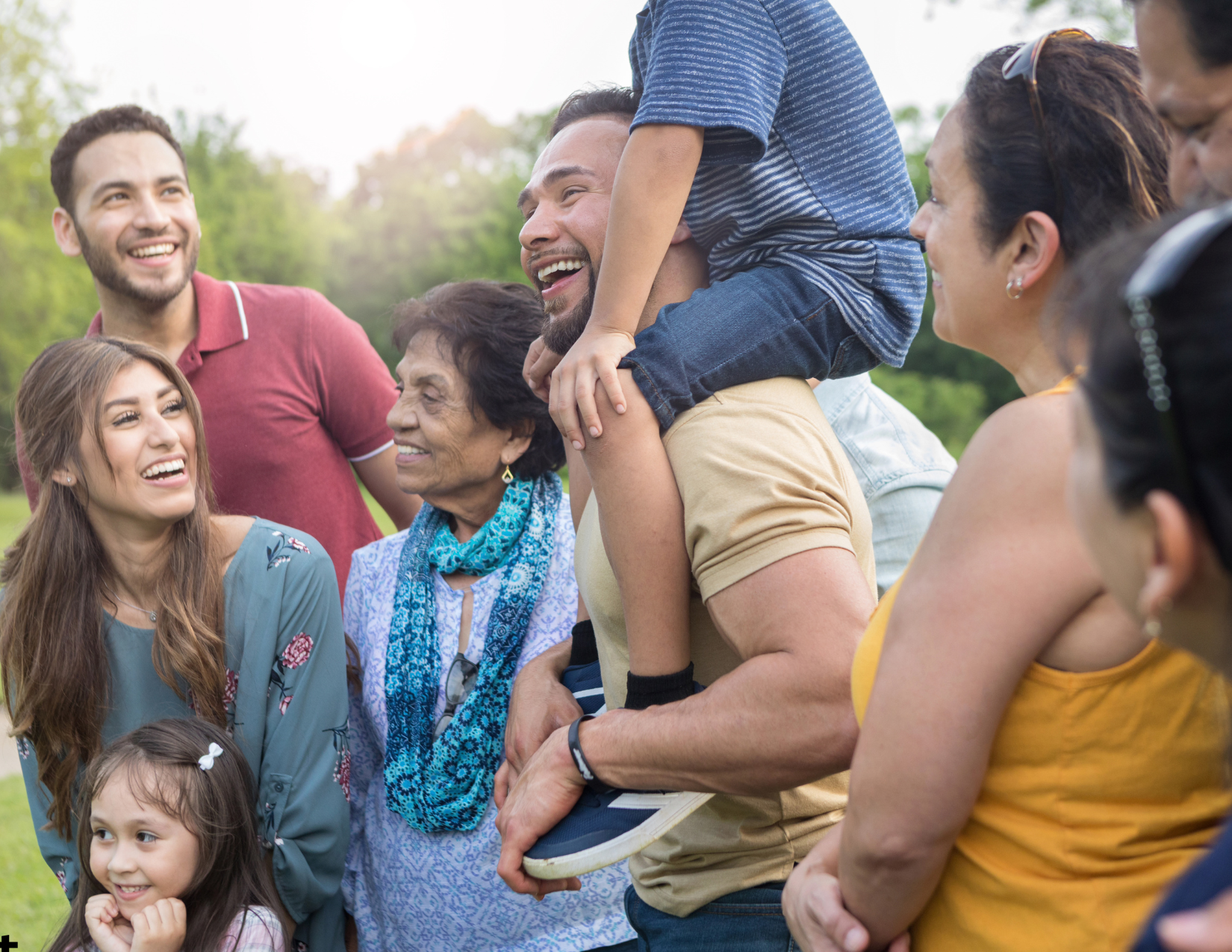
Calm Your Nerves at Family Gatherings: 5 Social Anxiety Tips
This post may contain affiliate links, which means we may receive a commission, at no extra cost to you, if you make a purchase through a link. Please see our full disclosure https://sagecounselingtherapyandwellness.com/disclosure-privacy-policy-terms-of-use/ for further information.
Family gatherings can bring warmth, laughter, and cherished traditions—but for those with social anxiety, they can also be overwhelming and stressful. The pressure of engaging in conversations, navigating large groups, and managing expectations can leave you feeling drained before the event even begins. Whether it’s the thought of answering probing questions or making small talk with relatives you haven’t seen in a while, the anticipation alone can trigger feelings of anxiety.
Social anxiety often heightens in situations where we feel scrutinized or fear being judged. Family gatherings can feel like a pressure cooker of social interactions, with a mixture of small talk, expectations, and old family dynamics. Anxiety can manifest in various forms—sweaty palms, a racing heart, or an urge to withdraw entirely. But there are steps you can take to manage these feelings. By planning ahead and using a few key techniques, you can reduce anxiety and create a more enjoyable experience. Here are five practical ways to navigate family gatherings with greater confidence and less stress.
1. Prepare Conversation Starters
One of the biggest challenges of social anxiety is the fear of awkward silences or not knowing what to say. When you’re anxious, your mind can go blank, or you may worry about saying the wrong thing. The discomfort of waiting for a conversation to begin can leave you feeling paralyzed, especially when you’re unsure about what topics are “safe” to bring up. Preparing a few conversation starters can help reduce this worry and make interactions feel more natural. For instance, you can talk about shared family memories or ask about someone’s recent activities, such as a vacation or a new hobby.
By anticipating questions or topics, you can avoid the stress of coming up with something on the spot. Consider asking relatives about their favorite traditions or how they’ve been spending their time. If someone asks about your work, prepare a brief and comfortable answer that doesn’t feel like an interrogation. You can always steer the conversation to a topic you enjoy or feel more comfortable discussing. This simple preparation can make social interactions feel less daunting and provide a sense of control over the conversation.
2. Set Boundaries and Take Breaks
It’s also important to set boundaries and allow yourself to take breaks when needed. The fear of seeming rude or disengaged can lead to a tendency to push through social situations, even when you’re feeling overwhelmed. However, it’s essential to recognize when to step back and recharge. You don’t have to be engaged in conversation the entire time. Taking breaks can help you preserve your energy and prevent burnout, giving you a sense of empowerment and control over your social interactions.
If you start to feel overwhelmed, stepping outside for fresh air, offering to help in the kitchen, or finding a quiet space to collect your thoughts can provide a much-needed reset. Don’t feel guilty for taking a moment of solitude, especially if it helps you stay grounded and calm. You could even tell a trusted family member beforehand that you might need a break and that it’s nothing personal. If you find yourself uncomfortable in a conversation, excuse yourself politely, even for a few minutes, to regain composure. Setting these boundaries ensures that your social anxiety doesn’t become a source of shame or self-criticism.
3. Use Grounding Techniques
When social anxiety starts to build, grounding techniques can be a helpful way to stay present and centered. At family gatherings, you might find your mind racing, overthinking what you said earlier, or worrying about what’s coming next. Grounding exercises can quickly stop the spiral of anxious thoughts. These techniques help you focus on the present moment, redirecting your mind away from anxiety.
One grounding method is to bring your attention to your surroundings by focusing on what you can see, hear, and feel. If you’re conversing, try to focus on the person speaking or notice the texture of the chair you’re sitting in. A deep breathing exercise, such as inhaling for four seconds, holding your breath for four seconds, and exhaling for six seconds, can also be incredibly effective in calming your nerves. Another simple technique is holding onto a small comfort object, like jewelry, a warm cup of tea, or a smooth stone. The tactile sensation of these objects can provide reassurance and bring you back to the moment when you start feeling overwhelmed.
4. Find a “Social Anchor”
Having a “social anchor” can also make family gatherings less intimidating. If there’s a family member you feel particularly comfortable with, sticking close to them can provide reassurance throughout the event. This person can serve as an emotional buffer, helping to guide conversations and making you feel less isolated. Let them know in advance that you might need their support, and perhaps even create a signal for when you need help in an uncomfortable situation. This support can make you feel less isolated and more at ease.
If you don’t have a close family member to rely on, consider finding another “anchor” in the room—someone you feel relatively comfortable with or even another guest who may be just as nervous. Additionally, group conversations are often less intimidating than one-on-one talks. Engaging in larger conversations can give you the freedom to participate without feeling intensely scrutinized. It’s easier to blend into a group; this dynamic often allows for a more natural ebb and flow in conversations. Having a social anchor—whether a trusted person or a group setting—gives you a support system and reduces the burden of feeling like you must navigate everything independently.
5. Be Kind to Yourself After the Event
Finally, being kind to yourself after the event is just as crucial as managing anxiety during it. Social anxiety often comes with a tendency to replay interactions in your head, criticizing yourself for what you said or how you acted. This self-criticism can fuel anxiety and make it harder to recover. It’s crucial to practice self-compassion and remind yourself that everyone experiences awkward moments, and they are normal parts of social interactions. This validation of your feelings can help you feel understood and less alone in your struggles.
Instead of focusing on what you think went wrong, celebrate that you showed up and did your best. Even if you felt anxious, you still made an effort to connect, and that’s a win in itself. After the gathering, do something comforting for yourself, whether it’s enjoying some alone time, taking a bath, or watching a favorite show. You can also reflect on the event by journaling about how you felt, identifying what went well, and considering what you might want to work on for the next gathering. These practices will help you process your feelings, release any lingering anxiety, and confidently approach future events.
Social anxiety can make family gatherings feel daunting, but with the right strategies, you can create a plan that helps you feel more at ease. You can navigate these events with greater peace of mind by preparing conversation topics, setting boundaries, using grounding techniques, seeking social support, and practicing self-compassion. Family gatherings should be about connection and celebration, not enduring stress or fear. You deserve to enjoy your time with loved ones, and by managing your anxiety, you’ll be able to do just that.
To discuss how therapy could help you during this season of your life, please contact me or schedule your free 15-minute consultation.
References:
Brendel, R. (2022, December 21). A Psychiatrist’s Guide to surviving family gatherings. Psychiatry.org – A Psychiatrist’s Guide to Surviving Family Gatherings. https://www.psychiatry.org/news-room/apa-blogs/surviving-family-gatherings
Wadmin. (2025, February 19). 10 ways to successfully handle social gatherings when experiencing social anxiety. Mindful Health Solutions. https://mindfulhealthsolutions.com/10-ways-to-successfully-handle-social-gatherings-with-social-anxiety/
U.S. Department of Health and Human Services. (n.d.). Social anxiety disorder: More than just shyness. National Institute of Mental Health. https://www.nimh.nih.gov/health/publications/social-anxiety-disorder-more-than-just-shyness
Managing social anxiety in family gatherings and events. GeneSight. (2025, March 9). https://genesight.com/blog/managing-social-anxiety-in-family-gatherings-and-events/
Want to read more? Here are a few of my related blog posts you may be interested in checking out!





0 Comments